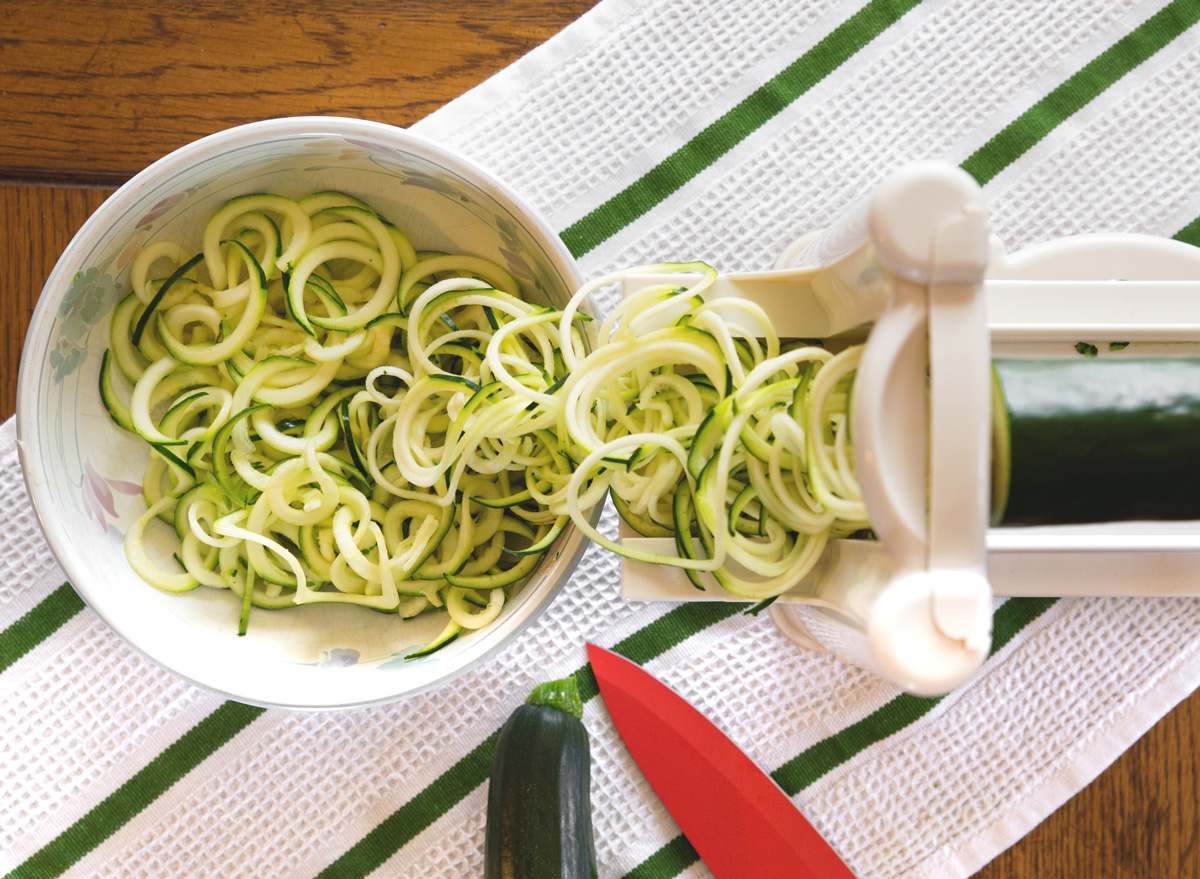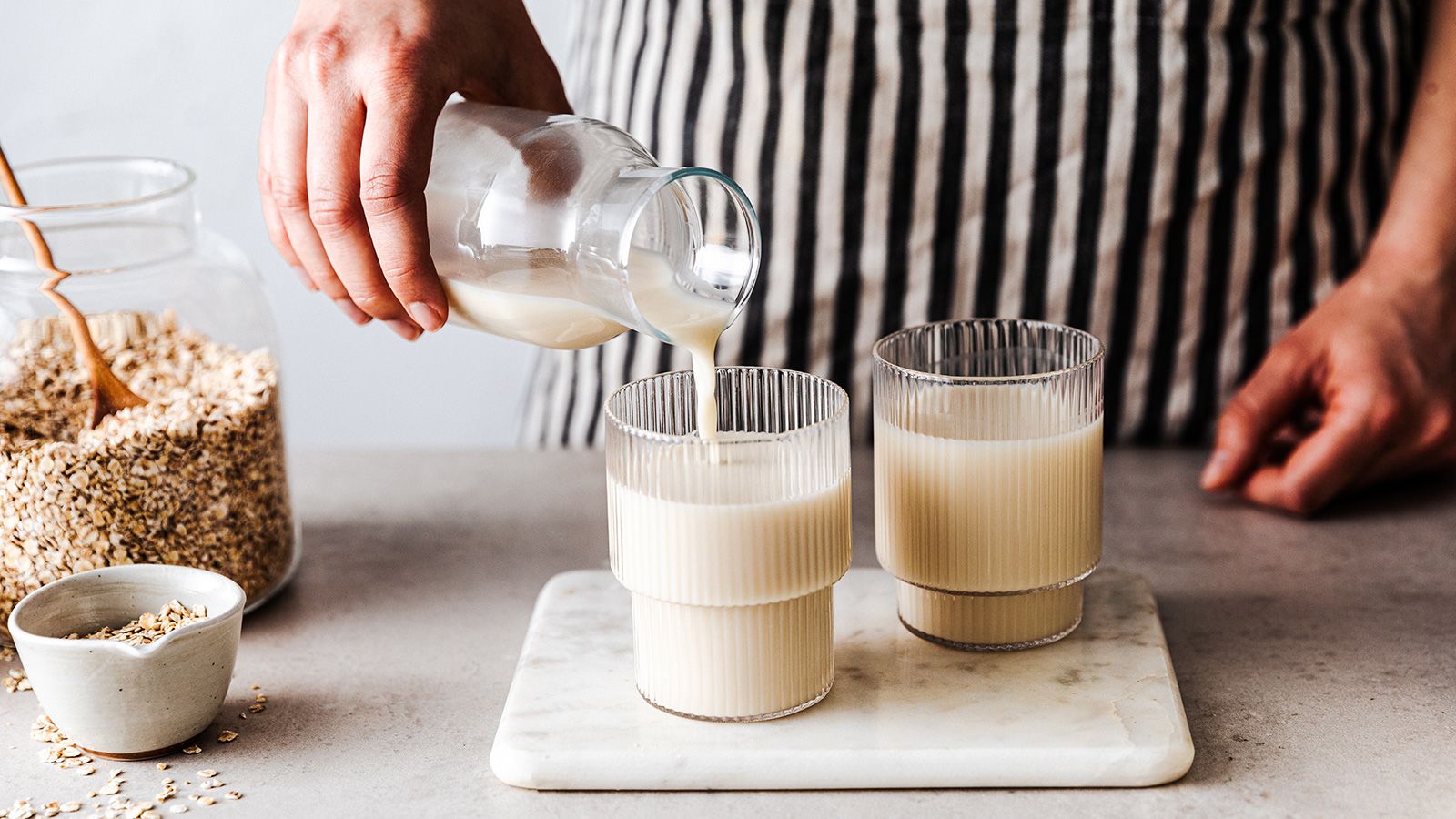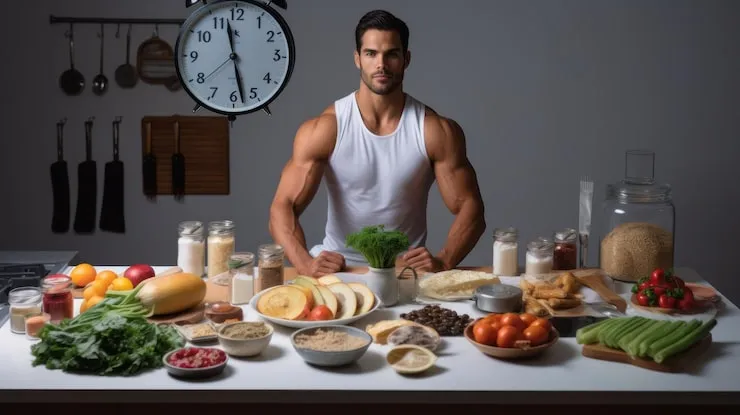Cut calories, avoid sugar, limit grazing — while you might associate these moves with improved health, that isn’t always the case. In particular, if you’re exercising strenuously for more than an hour a day, such as to prepare for a triathlon or a marathon, you may be better off forsaking some of this conventional nutrition wisdom.
Here are eight common nutrition beliefs to reconsider if you’re exercising a lot.
1. Avoid Refined Carbs and Added Sugar
A common piece of nutrition advice is to choose complex carbohydrates instead of refined ones (think whole-wheat bread, brown rice, and whole-wheat pasta over white), the reason being that complex carbs are higher in fiber, and fiber is good for the heart, and can help you lose or maintain weight if that’s your goal. But if you’re exercising a lot, refined carbohydrates consumed in moderation and at the correct moment may actually be your friend.
That’s because these types of carbohydrates can help athletes rapidly replenish their energy levels as they are metabolized quickly, says Los Angeles–based Destini Moody, RD, who is with the Top Nutrition Coaching network and specializes in sports performance.
If you exercise for more than 75 minutes, your body will deplete most of its energy stores during this time, she says. Consuming refined carbohydrates like white bread or even saccharine treats or fruit before extended periods of exercise will help ensure you have enough energy to get through your workout.
Some products, such as glucose bars, gels, and candies, are specifically designed for people to ingest during endurance exercises to maintain energy.
2. Limit Carbs Altogether

These days, carbohydrates get a poor reputation, and consuming a low-carb diet is associated with improved health in certain circles. Some credit the fad of consuming very-low-carb and very high-fat (aka the ketogenic diet or “keto”). But if you’re exercising a lot, decreasing carb intake can actually signal trouble for your health, endurance, and recovery.
Low-carb diets often don't contain adequate nutrition or energy, says Abbie Smith-Ryan, PhD, CSCS, director of the Applied Physiology Laboratory at The University of North Carolina in Chapel Hill. As a result, they may hinder metabolism, decreasing athletic performance and resulting to long-term weight gain and sports injuries.
3. Avoid High-Fat, Calorie-Dense Foods
Elite athletes have distinct macronutrient requirements — and need more calories overall — than individuals who are exercising in moderation as part of their customary health regimen.
“I work in basketball, with NBA players, especially young ones, and trying to get enough calories in them is really a challenge,” Moody says.
Moody prefers to employ food-swapping to meet caloric intake objectives. If, for example, an athlete prefers to consume toast in the morning, Moody will recommend substituting the toast for a bagel, which contains more calories and fat than toast. Or she would trade chips and salsa for chips and guacamole. She might even propose ordering an extra tortilla when you go out to dine to add extra calories to your entrée.
Salads can be a stumbling point on this front, Clark says. A serving of spinach with a little olive oil does not provide adequate calories or carbohydrates to sustain your muscles. And without bread, quinoa, sweet potato or healthy lipids like avocados, almonds, peanut butter, salmon and dairy, it can be challenging for athletes to get enough calories and carbohydrates to replenish depleted muscles. Having a peanut butter and jelly sandwich with your side salad might be a healthier lunch option for an athlete, she says.
Above all, don’t restrict calories when you’re exercising a lot. “Restricting calories is going against all your time and effort, regardless of your goal,” Smith-Ryan said. “Eating more and more consistently will help you feel better and perform better.”
4. Never Eat Between Meals
Speaking of eating consistently, “Oh, I’m just hungry all the time” is a prevalent sentiment among clients of Nancy Clark, RD, CSSD, a sports nutritionist in private practice, and the author of Nancy Clark's Sports Nutrition Guidebook. “It probably is because they are hungry all the time,” Clark explains.
This is why consuming frequently, in addition to contemplating caloric, is essential.
People who are extremely active need to consume every three to four hours, with some athletes consuming five to seven times per day, Clark says.
Clark says she finds a four-meal schedule works well for many active individuals. If you have a day job and you train after work, she recommends consuming breakfast around 8 a.m., lunch around noon, a second lunch around 3:30 or 4 p.m. before a workout around 5:30 p.m., and then supper afterward.
For morning trainers, she suggests having a moderate breakfast before working out, followed by the remainder of breakfast, an early lunch around 11 a.m., a later lunch at 3 p.m., and then supper. She doesn't term the fourth meal a nibble, she says, because she finds the word can come with too much self-judgment.
5. Don’t Eat Before Bed

Athletes may also want to experiment with disregarding the old aphorism about not eating before bed, says Max Deutz, a predoctoral research fellow studying nutrition and exercise performance at the University of Illinois in Champaign. Research into this topic is ongoing at his lab, Deutz says, but he believes that consuming a small quantity of protein — from a glass of milk, cottage cheese, or yogurt — before bed may assist in muscle recuperation.
Individual athletes’ success with this strategy does vary, Deutz says. For some individuals, a bedtime food may disrupt their slumber that night — and athletes do need more sleep than the general population, so this is a consideration (elite athletes need about nine hours nightly). But for others, a modest nibble at bed is well tolerated, so Deutz believes it’s worth some experimentation.
6. Reduce Salt Intake
Salt is one of those ingredients health experts often malign — mostly because most Americans consume too much of it. Excess sodium can increase the risk for elevated blood pressure.
But if you’re sweating a lot, you may actually need extra sodium in your diet. Insufficient sodium might cause discomfort and contribute to dehydration, Moody says.
You can help determine how much perspiration you’re losing from exercise based on how humid your clothing are post-workout. If your clothing have a white tint, you may be a briny sweater.
“Some runners or elite athletes who go out for long sessions might go out and notice, especially in the summer, that you can see and even taste the salt on your clothes,” Deutz says. “It shows up as white.”
College or professional athletes may use various other instruments or approaches to measure perspiration loss, from wearable sweat loss measuring devices to weighing themselves before and after exercise, Deutz adds.
Moody says athletes who work out in humid conditions, at high altitude, can also lose more sodium from excessive perspiration while training.
If that sounds like you, ingesting about 500 milligrams of sodium an hour before exercise can increase hydration levels, Clark says, and electrolyte sports beverages can assist with this during extended exercise.
For non-elite athletes, there’s likely no need to deviate from that advice: “Unless you are out there sweating bullets for more than three hours, it is not generally a problem,” Clark says.
7. Eat Only Whole Foods, Not Supplements
Smith-Ryan, like most nutrition experts, emphasizes the need to consume “real” or whole, unprocessed foods as often as feasible. Yet sometimes, particularly when an individual is engaged in intensive physical activity, natural food may not be enough and supplements may be beneficial.
While many supplements aren't worth the money, Smith-Ryan says, some are essential for athletes, particularly those containing protein, vitamin D, iron, and omega-3 fatty acids.
A beverage made with carbohydrates and protein can be useful for replenishing glycogen stores and enhancing recovery if you don’t have time to consume a full meal after a workout.
Speak to a registered dietitian nutritionist certified in sports dietetics to determine which, if any, supplements, may benefit you.
8. Plant-Based Milk Is Better Than Cow’s Milk

Plant-based milks are ubiquitous and often get a health halo. But Moody and some other dietitians are not a fan of these cow’s milk alternatives for athletes.
Toe to toe, these milks — including almond, soy, and oat — contain less fat, protein, and carbohydrate than whole milk, and these macronutrients are crucial for supporting athletic performance.
“If we are neglecting any of these nutrients, there will be repercussions,”.
Even diluted milk (which does not contain fat) can be problematic, Moody says. When you drink skim milk, if fortified with vitamin D, without a source of fat, your body won’t be able to use that vitamin D because vitamin D needs fat to be effectively assimilated.
Vitamin D is a crucial nutrient for athletic performance: Research connects higher levels of the sunlight vitamin to enhanced athletic performance and a lower injury risk.
Drinking whole or 2 percent milk may be especially essential for athletes who spend a lot of time indoors, or who have darker complexion, Moody adds. These are among the categories of individuals who are at a higher risk for vitamin D deficiency.
“Milk is a very complete protein and it contains, if we’re not talking about skim milk, fat and carbohydrates, so it hits all the macronutrients all in one,”.
This is not to say that you can’t observe a vegan or vegetarian diet if you want to run a marathon, Moody says. But she suggests working with a registered dietitian nutritionist who is a certified specialist in sports dietetics to ensure your dietary requirements are satisfied if you are considering about following a plant-based diet and engaging in significant athletic activity.




